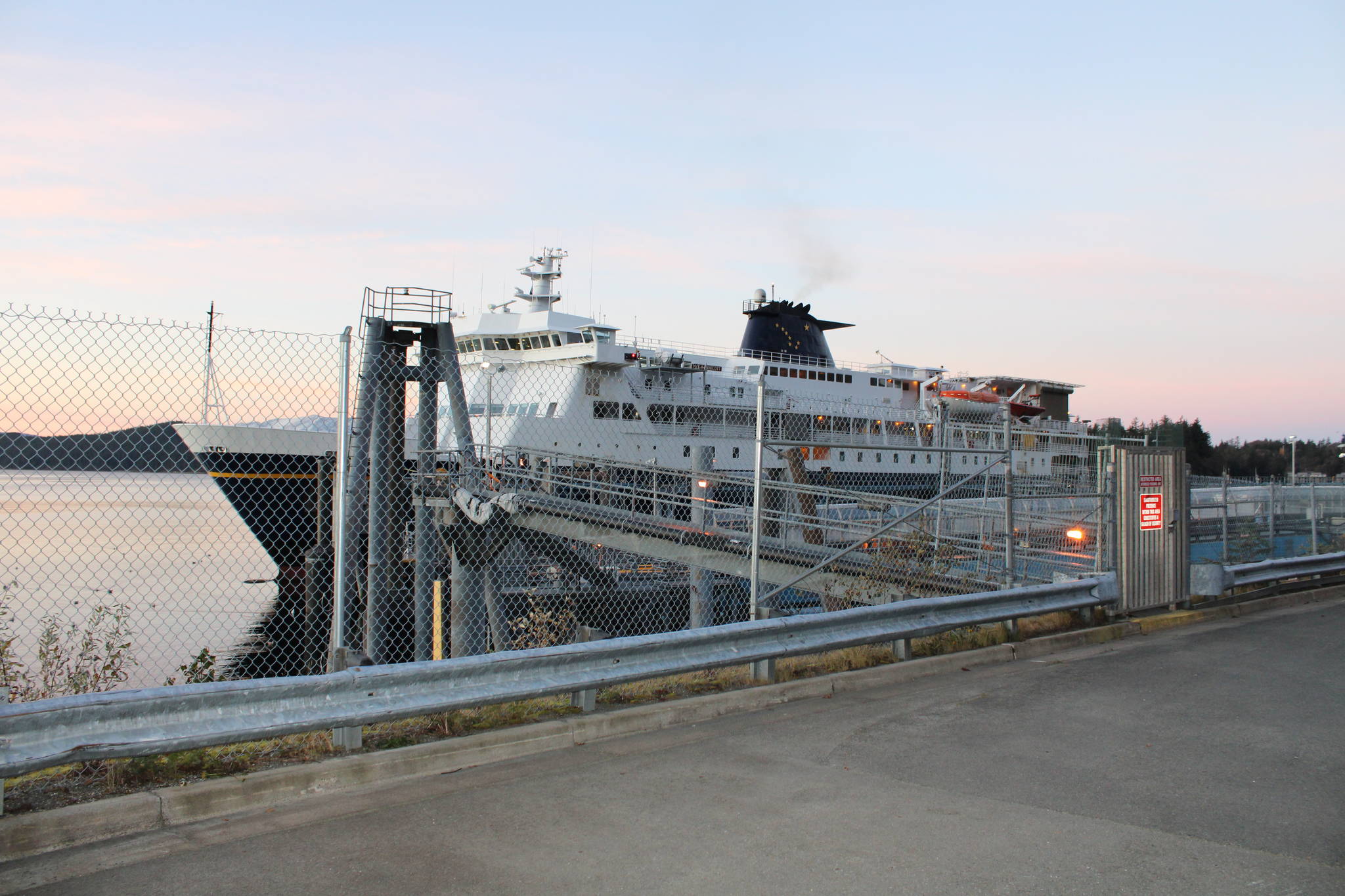The lack of a long-term planning and an unclear fiscal picture are two of the main challenges facing the Alaska Marine Highway System, Admiral Tom Barrett said Thursday to the Greater Juneau Chamber of Commerce.
Barrett is chairman of the AMH Reshaping Work Group which recently submitted its final report and list of recommendations to the governor’s office. Speaking to the chamber, he said the inability to plan over several years and the changing political environment that controls the system’s budget made it difficult for AMHS to build a reliable system amongst a changing transportation environment.
There was no multi-year budget process, Barrett said, but there were methods for future funding under state law. If money wasn’t available under the current fiscal circumstances, he said, then a multi-year fiscal plan should be made to at least provide AMHS with the ability to plan long term.
Barrett said many of the communities the group spoke to said they would accept less service if the system were more reliable, but there was no consensus on what essential ferry service was in many of the communities served by AMHS. The system was built when the state had more money, he said, and communities were added to the ferry even as air travel became more affordable and reliable.
“You have to consider where is the state as a whole? What level of service can you provide,” Barrett said. “This system was built when it was preferable to (travel by ferry) and there was money to do it.”
Several questions asked of Barrett following the speech had to do with next steps for AMHS and the group’s report. Barrett said the workgroup had submitted its recommendations to the Gov. Mike Dunleavy’s office and the administration would take the next step regarding the ferry system.
In an email, Dunleavy spokesperson Jeff Turner said the administration continues to review the recommendations put forth by the workgroup.
[Reshaping recommendations roil stakeholders]
But many of the ferry system’s stakeholders balked at the recommendations made by the workgroup and found fault with the group’s analysis. The workgroup used a report released in January from Northern Economics but that report was criticized by local lawmakers and others when it was released. Following the release of the workgroup’s recommendations, one of the lawmakers assigned to the group itself, state Rep. Louise Stutes, R-Kodiak, called the report “a little disappointing.”
Renegotiating union contracts was another recommendation made by the group, Barrett said, noting labor representatives have seemed at least willing to discuss the matter in past conversations. But the workgroup’s report says labor costs make up 70% of the system’s cost, a number of labor representatives have said is an overestimation.
Perhaps most critical of the workgroup’s recommendations is the Alaska Municipal League, which said the study and others like it were based on what they called a “feedback loop” of negative information, where decisions and studies made about the ferry’s future are based on actions meant to diminish the system.
“What we see is this mutually reinforcing scenario, where decisions are taken in real time to diminish the system, while iterative planning processes for the longer term are based on the results of those ongoing decisions,” AML said in a letter to the governor about the workgroup’s recommendations.
“Thus, the current study is based on a system that is the result of negative impacts from past studies and decisions,” the letter continued. “Our baseline is lack of viability, and recommendations based on not how to improve the system but to stem the loss,” the letter said.
There us no way the ferry could currently exist without a state subsidy, Barrett said, and the system is not yet in a place where it could be divorced from politics or privatized and sold to a commercial operator.
Working with the governor’s administration, Barrett said he didn’t believe there was a desire to end the system entirely.
“I didn’t hear any of that at all,” Barrett said of notions the governor wanted to end the ferry system. “I think there’s an appreciation for the value of the system and a desire to reduce some of its cost.”
• Contact reporter Peter Segall at psegall@juneauempire.com. Follow him on Twitter at @SegallJnuEmpire.

